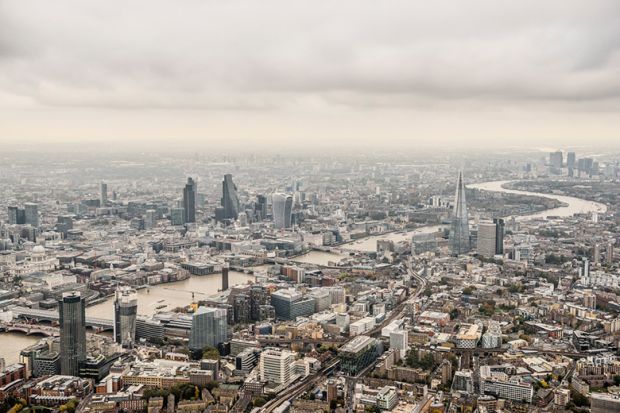If all the world’s almost 66 million forcibly displaced people were to form a country, as journalist Emma Batha points out in a recent article published by the World Economic Forum and Thomson Reuters Foundation, it would immediately become the 21st largest in the world, coming just behind France and ahead of the UK.
In her 2007 work, From Where We Stand: War, Women’s Activism and Feminist Analysis, Cynthia Cockburn articulated with passionate urgency a world where human beings might have “a future transnational citizenship involving not ‘national’ identity alone but many different and equally important dimensions of belonging”. In the intervening decade, humanity has moved not towards a realisation of Cockburn’s aspiration, but markedly away from it. Her new book, Looking to London: Stories of War, Escape and Asylum, considers what our post-Brexit, Trumpian world means for some of those 66 million.
At the heart of Looking to London are women who are border-crossers in more ways than one. They have made remarkable transnational journeys, nearly always under the most awful circumstances, to make their homes in London. They have crossed numerous invisible cultural borders too, and the London Cockburn portrays is, broadly speaking, a place of asylum for them. Her book is “a celebration of London, but a cautious one”.
The women’s stories are vividly contextualised in geopolitical terms. Turkan Budak, for example, is a 50-year-old Hackney woman of Kurdish descent, and her situation is especially poignant. Her political activism has made her a doubly marked woman: the British security forces and Border Agency view her with almost as much suspicion as the Turkish authorities. Indeed, a recurrent theme in Looking to London is how varieties of surveillance, both local and national, simultaneously demarcate and perpetuate ethnic and cultural differences. The idea of “community” becomes even more important when set against this narrative of suspicion.
Cockburn provides a platform for women to tell their stories. She listens to, and she conveys, their sometimes gruelling narratives with energy and optimism. We meet women fleeing the punitively anti-Tamil Hindu regime in Sri Lanka, for example, some of whom ended up in the scarcely more hospitable Yarl’s Wood Immigration Removal Centre (the name alone has a distinctly dystopian ring). But, again, London’s apparently indefatigable capacity for embracing otherness – for offering genuine “asylum” – comes to the fore, this time in Hounslow. Similarly, under Cockburn’s expert guidance we gain insight into the lives of Sudanese women in Camden and Somali migrants now resident in Tower Hamlets. Focusing on the integration of Syrian and other refugee families in Lambeth, school chaplain Ellen Eames hits the nail on the head when she tells Cockburn that: “You don’t have to be a refugee to come from a war zone. A lot of our children come from troubled places. So really nobody in the school can fail to see the point of [the] Refugees Welcome [campaign].”
Cockburn’s approach is an engagingly autoethnographic one – she positions herself from the outset as someone drawn, but not native, to London. I learned much about her, and about the women whose stories she shares – she’s a gifted storyteller with decades of research underpinning her work. Crucially, she’s keenly aware that academic jargon is just another form of exclusion in a world where inclusivity needs to be a top priority for scholars if much of what we do in universities is to have genuine worth.
Emma Rees is professor of literature and gender studies at the University of Chester, where she is director of the Institute of Gender Studies.
Looking to London: Stories of War, Escape and Asylum
By Cynthia Cockburn
Pluto Press, 256pp, £63.00 and £15.00
ISBN 9780745399225 and 9218
Published 20 September 2017
Register to continue
Why register?
- Registration is free and only takes a moment
- Once registered, you can read 3 articles a month
- Sign up for our newsletter
Subscribe
Or subscribe for unlimited access to:
- Unlimited access to news, views, insights & reviews
- Digital editions
- Digital access to THE’s university and college rankings analysis
Already registered or a current subscriber? Login




